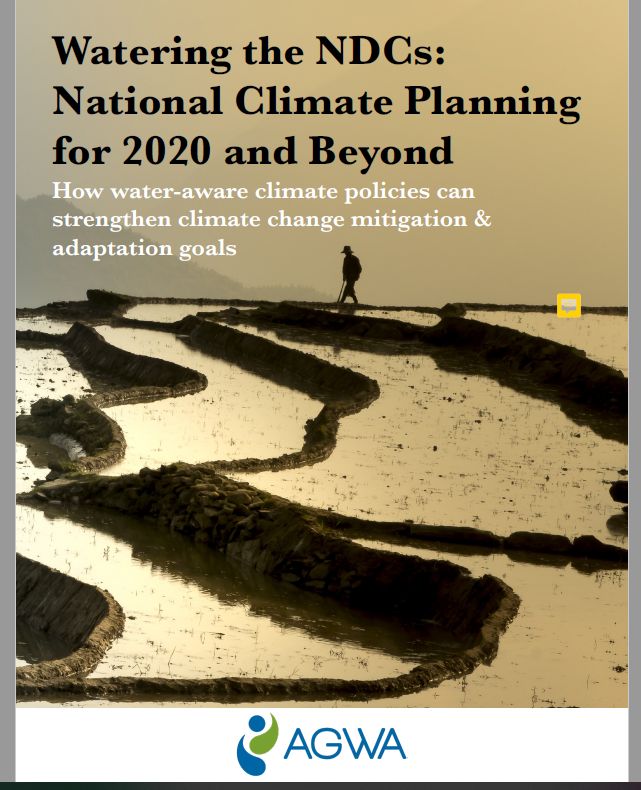Recently the RwB contributed to development of a guidance document on taking water into account when developing climate mitigation and adaptation measures. Alliance for Global Water Adaptation (AGWA) issued the first public version of this living document on November 15.

By crowdsourcing with national, sectoral, and civil society partners, AGWA has synthesized a short set of recommendations to guide countries in the choices they make in recognizing the water embedded across sectors and climate targets. The report provides guiding principles and recommendations for national climate planners and decision-makers to help them ensure that they meet their goals within their national adaptation plans (NAPs) and Nationally Determined Contributions (NDCs) by considering the reality of their water management across sectors and what needs to be done to make that management robust and flexible enough to withstand climate change.
While this document concentrates on the mechanisms outlined within the UNFCCC Paris Agreement, the lessons are equally applicable to the 2030 Agenda and the Sendai Framework for Disaster Risk Reduction.
In 2020, Parties to the Paris Agreement are invited to communicate their mid-century, long-term low greenhouse gas emission development strategies (Long-Term Strategies or LTSs). They will outline how they plan to achieve these objectives successively in their Nationally Determined Contributions also due in 2020 and every five years onward. Parties are encouraged to use the principles, recommendations, and resources included in this document to augment their 2020 climate plans (both NDCS and LTSs) and to inform subsequent climate activities such as their National Adaptation Plans (NAPs).
We congratulate the AGWA for successfully starting this much needed discussion.
Read the document “Watering the NDCs: National Climate Planning for 2020”here https://www.wateringthendcs

